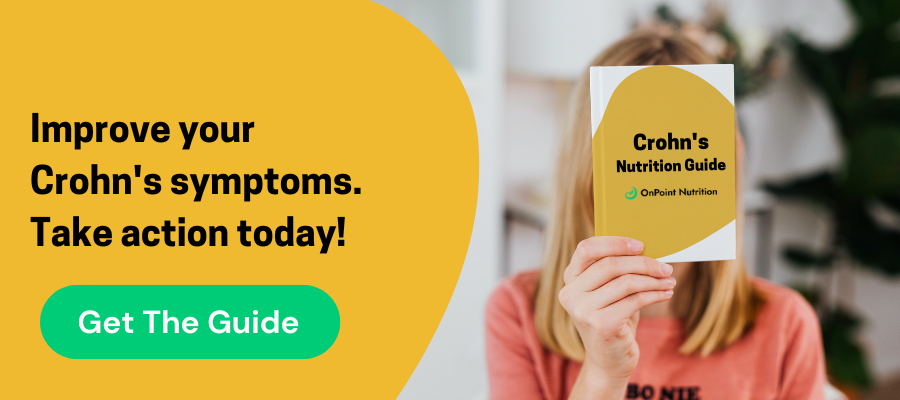
Crohn's Disease, an Inflammatory Bowel Disease, has many treatment options. The treatment goal for all methods is to achieve and maintain remission, which means avoiding inflammatory flares and Crohn's symptoms.
While there are various treatment options, there is no cure for Crohn’s Disease. Medications are often prescribed to manage inflammation and alleviate symptoms, and surgery is saved as a last-resort treatment. However, 75 percent of individuals living with Crohn’s will eventually need surgery.
Your doctor may perform surgery if the medications you take stop working effectively or cause severe side effects. Additionally, if you develop colon cancer indicators, cancerous tissue, or are at an elevated risk for colorectal cancer, surgery is likely indicated. Your doctor may also perform surgery if you develop:
- A bowel abscess, which is an infected pocket within the intestine
- A bowel perforation, which is a hole in the intestinal wall
- A fistula, an abnormal tunnel that forms to connect two parts of the intestine or the intestine to another organ
- An intestinal obstruction or blockage
- Toxic megacolon, a serious condition that involves the widening of the large intestine
- Uncontrolled bleeding
Types of Crohn's Disease Surgery
Various surgical procedures are used to treat Crohn’s Disease. The goal of surgery is to improve your quality of life, reduce future complications, and preserve as much bowel as possible. All surgeries provide both risks and benefits, and your doctor will help you select the best option for your condition.
Bowel Resection
Bowel resection surgery involves removing damaged parts of the intestines and reconnecting the healthy sections on either side. This surgery is indicated when at least one stricture is present but is not likely to be performed until there are multiple strictures. A stricture is a narrowing of the intestine that makes passing food through that area difficult and can lead to intestinal blockage. More than 30 percent of people with Crohn’s will develop a stricture within ten years of diagnosis.
Bowel resection provides symptom relief but is not a cure for Crohn’s Disease. About half of individuals will experience symptoms again, most of which occur at the reattachment site.
Ostomies
Your doctor may create an ostomy, which is a hole that connects your bowel to the exterior of your body. The hole in the abdominal wall that leads out of the body is referred to as a stoma. The stoma will be about the size of a quarter and appear pink, moist, shiny, and slightly raised. It is generally located on the lower abdomen, to the right of the belly button. An external ostomy pouch will be connected to the stoma to collect waste. The pouch will need to be emptied several times each day.
After this procedure, you should contact your doctor if you develop an infection in the stoma or notice the stoma sticking out further or pulling back into the body. Additionally, if you are not collecting waste in the ostomy pouch, there may be a blockage and you should alert your doctor immediately.
There are multiple ostomy types. The one that is right for you depends on which area of your bowel is affected by Crohn’s.
- IleostomyFor an ileostomy the small bowel is rerouted and connected to the stoma. Ileostomies can be temporary and used to let your intestine heal. At times ileostomies are permanent.
- ColostomyA colostomy is similar to an ileostomy but reroutes and connects the large bowel to the stoma instead of the small bowel. This procedure may also be temporary or permanent.
- ProctocolectomyIn a proctocolectomy the colon and rectum are removed, and an ostomy is formed to eliminate waste directly from the small intestine.
Strictureplasty
Resections and ostomies involve removing bowel sections, whereas a strictureplasty does not. Instead, a strictureplasty shortens and widens the narrowed bowel section without any removal. This procedure is often performed laparoscopically so it is less invasive.
Fistula Removal
Fistulas can be opened, closed, removed, or drained surgically if they do not heal with medication.
After Surgery
Immediately after surgery, you will likely need nutritional support, meaning you will receive nutrients via an IV. This allows your bowel to rest and heal. As the body heals, you will be able to diversify your diet and slowly return to your normal food intake. Your doctor and dietitian can help you adjust your diet as needed throughout the healing process.
After losing some intestinal sections, you may struggle to absorb adequate nutrients from your food. When intestinal pieces are removed, there is less surface area to absorb the vitamins, minerals, and other nutrients your body needs. You will likely need to take nutritional supplements, which your doctor or dietitian will recommend to you.
Some individuals experience short bowel syndrome (SBS) after a bowel resection because they lack the ability to absorb required nutrients. If you experience chronic diarrhea, weight loss, abdominal pain and cramping, or bloating after surgery, reach out to your doctor.
Although surgery can significantly improve Crohn’s disease, it is not a cure, and it is still important to take care of your gastrointestinal tract after surgery. Continuing to work with your doctor and dietitian will allow you to maintain a healthy life.

Topics

Kaitlyn Willwerth is a Registered Dietitian at OnPoint Nutrition. Kaitlyn's work focuses on providing individualized health and lifestyle coaching and, most importantly, support. She is a Certified LEAP Therapist and has also completed the Monash University 'Low FODMAP Diet for IBS' online training course for health professionals.




